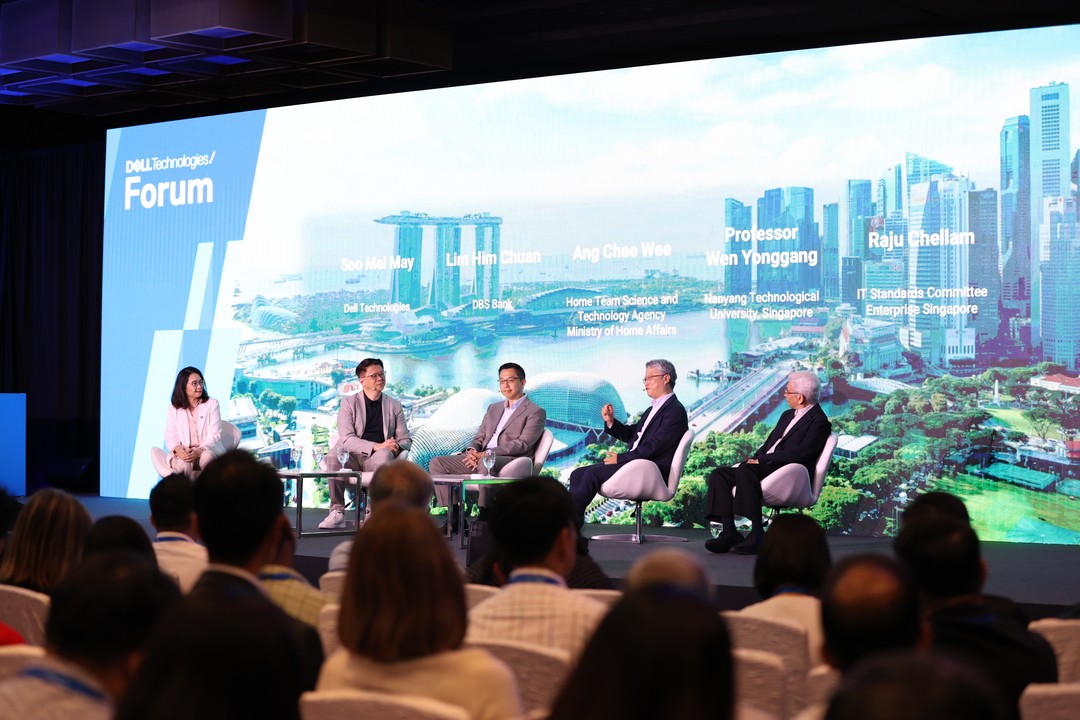
Since its introduction nearly two years ago, ChatGPT has captured widespread attention, with countless reports highlighting its potential to revolutionise industries and reshape the future of work.
Driven by a sense of urgency to harness generative AI, numerous companies have embarked on exploratory projects. Conversations I’ve had with enterprises in Southeast Asia have also revealed that many businesses are still in the experimentation phase.
However, there are bright spots among the larger companies and government agencies that have amassed the resources including talent, data and development experience in the past decade to advance into GenAI. They are better placed to quickly identify, prototype, test and rollout GenAI applications.
In Singapore, some enterprises and government organisations have stepped forward to share their GenAI work.
OCBC Bank, for example, has used GenAI to resolve customer issues more quickly, leading to a 20 per cent to 30 per cent improvement in customer loyalty.
Last week, Singapore’s Home Team, comprising the 11 agencies under the Ministry of Home Affairs such as Singapore Police Force and Immigration & Checkpoints Authority shared how it was pursuing GenAI.
For example, the Home Team Science and Technology Agency (HTX) is developing a prototype chatbot designed to take the hassle out of reporting crimes.
This AI-driven assistant will not only guide citizens through the process but also prompt them for any missing details, ensuring that every piece of crucial information is captured.
Ang Chee Wee, the chief AI officer and assistant chief executive of HTX, knows all too well the headaches that come from incomplete reports.
“We see a lot of time wasted on follow-ups because people often forget to include all the facts,” he explained. With the new chatbot, the days of having an officer follow up on the missing details would be over.
HTX is also constructing another GenAI solution, a procurement assistant that will help Home Team officers navigate the labyrinth of rules and regulations involved in procurement and tender evaluations. This AI will draft initial documents, cutting through red tape and freeing up human talent for more strategic work.
AI is not new to the Home Team. It has already developed and deployed several AI solutions. Immigration clearance at the Singapore Changi Airport, for example, has been automated.
Some travellers do not need passports, since the automated clearing lanes use facial and iris recognition technology to identify them.
With the experience, talent and resources, the HTX is ready to advance into GenAI phase. In June, HTX unveiled its ambitious plan to embed AI across the entire Home Team, transforming it into an “AI-ready force” of the future.
This bold movement is backed by a hefty S$400 million budget for research and development, with plans to build a powerhouse team of 500 AI specialists over the next few years.
Ang shared these insights during a panel at the Dell Technologies Forum last week, where he was joined by Professor Wen Yonggang of Nanyang Technological University (NTU), Lim Him Chuan, group head of strategy, transformation, analytics, and research at DBS Bank and Raju Chellam, chairman of the Singapore Computer Society Cloud and Data Standards committee of Singapore. The panel was moderated by Soo Mei May, Chief AI, global solution specialist, Dell Technologies.
Lim of DBS revealed that the bank has been harnessing AI’s potential for over a decade. With the rise of GenAI, DBS is now taking things up a notch by creating DBS GPT.
This is a cutting-edge platform that promises to be an enterprise knowledge base at every employee’s fingertips. “We’re building a solid foundation for AI to flourish across the bank,” said Lim.
To fuel this AI revolution, DBS is also developing ADA, a platform designed to standardise the development of AI applications in the bank.
It provides an architecture for the that ensures that data used for AI is “clean” and holistic. Plus, the same development tools are used and rigorous testing is undertaken.
And it’s not just about the technology – talent counts as well. About a year ago, the bank united its AI experts, who were spread across different divisions, into a data chapter. This brought together 700 data professionals, including 200 data scientists, to power the bank’s AI journey, added Lim.
On the data centre front, NTU’s Prof Wen is focusing on making such facilities greener. With more data needed to train AI models, data centres are consuming a lot of energy for computation.
Prof Wen’s groundbreaking research aims to slash the power usage effectiveness (PUE) of AI-powered data centres in the Republic, potentially cutting carbon emissions by a quarter million tons annually.
Meanwhile, as AI becomes a cornerstone of business strategy, governance is coming into sharper focus as well. Chellam asserted that AI guardrails should not be an afterthought but a must-have. AI governance is needed to ensure the safety and security of new intelligence introduced by GenAI, he added.
But will AI be regulated in Singapore? No, said Chellam, who predicted that Singapore was unlikely to impose strict AI regulations anytime soon.
Regulations might curb innovation at a time when companies should be pushing boundaries, he explained. Plus, until there are clearer standards and frameworks, regulation would be premature, he added.






